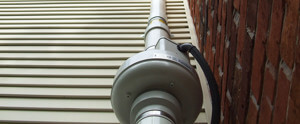SSM Health Medical Minute – Radon is second leading cause of lung cancer
Should you test for radon?
Testing is the only way to know your home’s radon levels. There are no immediate symptoms that will alert you to the presence of radon. It typically takes years of exposure before any problems surface. The US EPA, Surgeon General, American Lung Association, American Medical Association, and National Safety Council recommend testing your home for radon because testing is the only way to know your home’s radon levels.
Radon is a national environmental health problem. Elevated radon levels have been discovered in every state. The US EPA estimates that as many as 8 million homes throughout the country have elevated levels of radon. Current state surveys show that 1 home in 5 has elevated radon levels.
See the video & entire article here.




